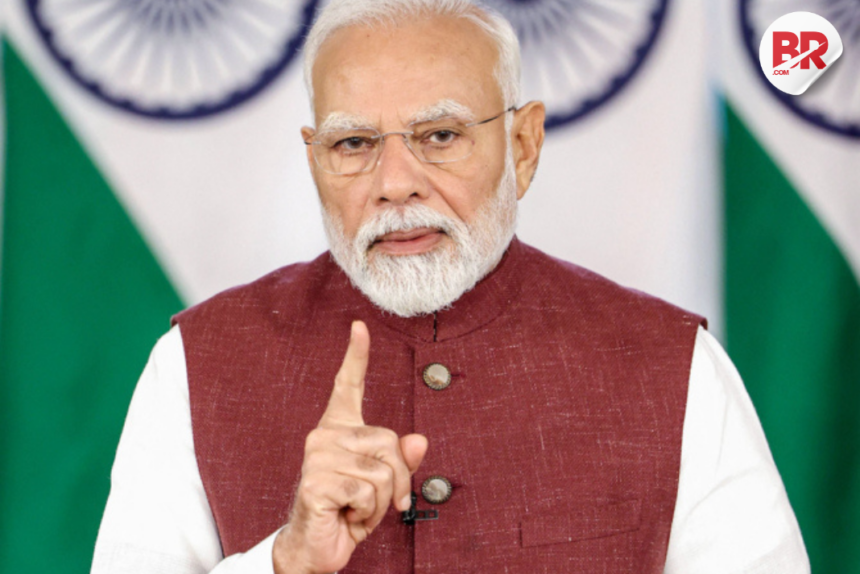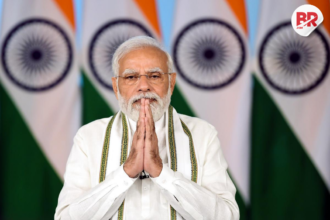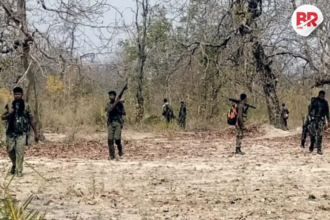
Prime Minister Narendra Modi’s recent statement, “Ghar mein ghuskar marenge” (We will enter and strike in their home), has sparked both national pride and international debate. This phrase follows India’s successful Operation Sindoor and signals a strong shift in India’s security doctrine.
Operation Sindoor: The Backdrop of Bold Action
Operation Sindoor, though details remain largely classified, likely represents a strategic operation targeting terrorist infrastructure within Pakistan. While the exact outcomes are unknown, it has emboldened India’s approach to combatting cross-border terrorism.

Modi’s statement reinforces India’s readiness to take proactive measures, sending a strong message that India will no longer wait for threats to materialize on its own soil.
“Hum ghar mein ghuske maarenge”
Pakistan must be shivering after listening to this warning of Narendra Modi.🫡🔥 pic.twitter.com/S7ZhRuRzQy
— 𝐇𝐲𝐝𝐫𝐨𝐠𝐞𝐧 (@ImHydro45) May 13, 2025
Let’s break down the significance of Modi’s words:
- Deterrence to Pakistan: The statement is a direct message to Pakistan that India will not tolerate any safe haven for terrorists. It’s clear: any group or individual targeting India will be dealt with swiftly, no matter where they are.
- A More Proactive India: Modi’s words imply a major shift from a reactive defense to proactive action. India is ready to take the fight to the source, targeting terrorist infrastructure before attacks can occur.
- Redefining Sovereignty: This phrase also challenges traditional notions of sovereignty, suggesting that protecting Indian citizens is a priority over strict adherence to international borders in cases of terrorism.
Domestic Reactions: India Stands United
Within India, Modi’s statement has resonated strongly. For a nation scarred by multiple terrorist attacks, this bold stance is seen as a sign of decisive leadership.
The public, tired of waiting for justice, views this as a much-needed course correction—an unwavering commitment to national security. There’s no room for hesitation.
International Reactions: A Divided World
Meanwhile, Pakistan’s reaction has been predictably negative, accusing India of aggressive posturing. The global community, too, is watching closely. While terrorism is condemned worldwide, many countries are wary of actions that could escalate tensions in the already volatile region.
The challenge for India will be to balance its security needs with maintaining diplomatic relations, particularly with key players in the West and the UN.
What’s Next for India’s Security Strategy?
The future of India’s strategy looks set for major shifts. Here’s what we can expect:
- More Cross-Border Operations: With India’s new stance, we could see more covert or overt operations targeting terrorist cells within Pakistan.
- Heightened Risk of Escalation: The risk of military conflict between India and Pakistan grows, and any misstep could have catastrophic consequences.
- Diplomatic Hurdles: India’s assertive policy will come under international scrutiny. India will need to carefully manage its diplomatic relationships while ensuring its citizens’ safety.
The Road Ahead: A Proud, Decisive India
India has always been a resilient nation, but Modi’s leadership marks a new chapter. His firm stance on national security reflects India’s growing global influence. No longer playing second fiddle to the global narrative, India is asserting itself, making it clear that it will no longer tolerate being the victim of cross-border terrorism.
As the world watches, India’s response is not just a defense strategy—it’s a declaration that the nation is no longer catching up. India is now leading, setting a standard for decisive action in a region where talk has often overshadowed action.
With Modi at the helm, India is not just defending its borders, but redefining the meaning of national security.
Also Read “When Our Forces Deflate Nuclear Blackmail Bluff”: What Modi Said at Adampur












